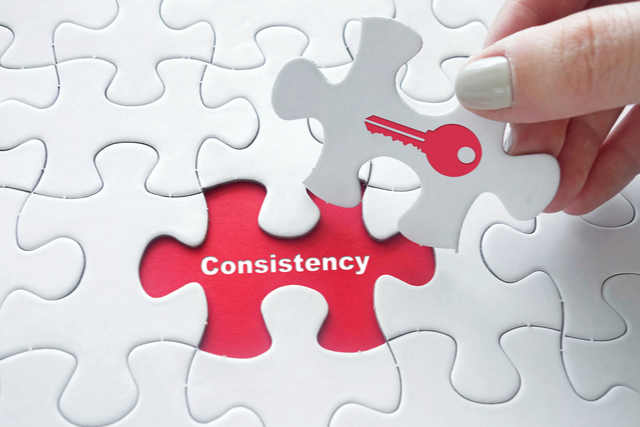Selling isn’t always sexy.
Sometimes you have a product that everyone needs, but nobody likes paying for it.
Take the energy industry, for example. If your biggest sales strategy is only about the lowest cost per kilowatt, it can be a challenge.
How do you change the sales dynamic? It starts by reframing the sales strategy and educating customers and prospective customers.
Selling What Customers Want
There are some things that customers want regardless of where they buy products or get services. They want reliable solutions from trustworthy providers. When there’s a problem, they want someone to solve it quickly.
Reliability
One of the big things you’re selling is reliability. In the tech world, cloud service providers talk a lot about their uptime guarantees. It’s so important that most put it in writing in their Service Level Agreements (SLAs). A typical uptime guarantee is 99.99%. That’s nearly 9 hours of downtime annually. Most utility companies have uptime that rivals or beats tech companies. Highlighting your reliability can be a strong selling point.
Building Trust

Only 3% of people think salespeople are trustworthy. Yet trust is one of the biggest factors in sales. People don’t buy if they don’t trust what you are saying. You’re entering into any sales discussion with a big negative you need to overcome.
It takes time to build trust. You do that by always being honest and transparent about what you can and cannot deliver. To establish trust, you need to provide what Cameron Elliot, Founder and Consultant at Elevate Corporate Training, calls The Trust Equation.
The Trust Equation has three components that must be met to establish trust with a prospect: credibility, reliability, and intimacy.
- Credibility: experience, expertise, value
- Reliability: dependable and do what we say we will
- Intimacy: establishing relationships
Problem Solving
In economics, utility means the total satisfaction one receives from consuming a good or service. When people think about a utility company or energy company, that satisfaction quickly erodes when there’s a problem or interruption — even if it’s not something within your control.
Training your sales and support teams to be active problem-solvers helps align sales and marketing.
Renewable Energy and Sustainable Practices
Another important component in any sales outreach effort is providing services and solutions that your customers want.
Consumers clearly support renewable energy and sustainable practices. Are you telling people what you’re doing?
Renewable energy now accounts for some 20% of Australian energy consumption, according to the Clean Energy Council. Yet, clean energy and sustainable energy is increasingly an important concern. More than three-quarters of Australians say it’s important to have a long-term plan to move to clean energy.
Let customers know that you value sustainability and educate them about your efforts to move to clean energy.
Are There Other Products to Sell?
A study done by Mower asked if customers would consider buying additional products from utility companies. 68% of those surveyed said they would.
Energy companies globally are offering eCommerce options for everything from light bulbs to smart thermostats to low flow aerators and electric vehicle plugins. When you can align your product offerings with your goal to help customers conserve energy or help build more sustainable energy sources, it can be a powerful conversation that reinforces what you’re selling.
Are you training your sales and support team on how to upsell? If more than two-thirds of customers are interested in what else you have to offer, there is a significant opportunity for growth.
Successful Selling Means Consistent Delivery

Customer Support
When customers call, do they have to wait on hold for long periods waiting to connect with a team member? Are team members trained and coached on providing superior customer service?
A new survey shows that 88% of customers want 24-hour access to everything. Are you able to offer 24-hour support either online, on the phone, or both?
Once people sign up with an energy company, they rarely think about it again except when the bill comes. When they do think about it, it’s when there’s an outage. Do you have a robust communication strategy to let customers know when there’s an interruption in service, what you’re doing about it, and providing them with regular updates?
Customer interaction with the sales team can be fleeting, but engagement with support teams can be ongoing. A positive customer experience can go a long way in building long-term customer satisfaction. Conversely, negative interaction can reinforce negative stereotypes.
Billing Transparency
Another common complaint with energy companies is a lack of transparency in billing. Not only does this confuse and frustrate customers, but it is likely to increase calls and queries. This creates more work for the support team and longer wait times for other customers.
Website Update
You may also need to update your website and support materials to emphasise your selling strategy. A quick look at the regional and national energy companies in the country shows that pricing, discounts, and credits are still dominating the sales effort.
Typically, the only mention of clean energy or sustainability is relegated to buying carbon-neutral credits.
Highlighting the other aspects of your organisation is important, including your sustainability efforts, customer service commitment, and anything else your sales team decides to target. If these items are not front and centre on your website and support material, customers are less likely to know about them and more likely to focus solely on pricing.
Sales Training for Energy Companies
In most organisations, only one out of 250 salespeople consistently hit or exceed their sales targets. If you want to shift how sales are done and improve your sales effort, you need to build an internal sales training and coaching culture.

More than a Commodity
When you are in a commodity business, your sales and support team must understand the value they provide beyond pricing.
Your organisation does so much more than provide a commodity at a price point. It’s time to train your team to showcase the other things you do that can differentiate yourself in the marketplace.





